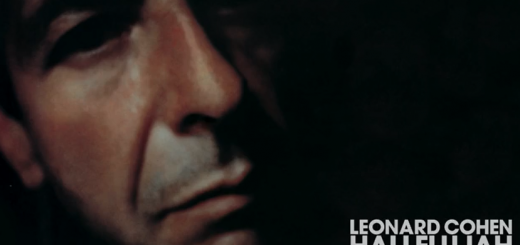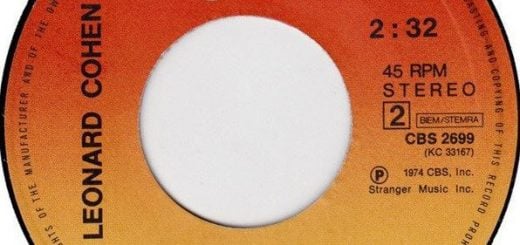The Partisan by Leonard Cohen Lyrics Meaning – Unveiling the Echoes of Resistance and Hope
Lyrics
I was cautioned to surrender
This I could not do
I took my gun and vanished.
I have changed my name so often
I’ve lost my wife and children
But I have many friends
And some of them are with me
An old woman gave us shelter
Kept us hidden in the garret
Then the soldiers came
She died without a whisper
There were three of us this morning
I’m the only one this evening
But I must go on
The frontiers are my prison
Oh, the wind, the wind is blowing
Through the graves the wind is blowing
Freedom soon will come
Then we’ll come from the shadows
Les Allemands étaient chez moi
Ils me dirent, “résigne toi”
Mais je n’ai pas peur
J’ai repris mon âme
J’ai changé cent fois de nom
J’ai perdu femme et enfants
Mais j’ai tant d’amis
J’ai la France entière
Un vieil homme dans un grenier
Pour la nuit nous a caché
Les Allemands l’ont pris
Il est mort sans surprise
Oh, the wind, the wind is blowing
Through the graves the wind is blowing
Freedom soon will come
Then we’ll come from the shadows
Delving into Leonard Cohen’s ‘The Partisan,’ listeners find themselves enveloped in the narrative of an unnamed fugitive, escaping the grasp of oppressors. It’s more than a song; it’s a textured historical document put to music—a hauntingly beautiful recount of the resilience and the often-overlooked personal struggle within the larger tapestry of war.
Beyond the poignant melody, Cohen’s rendition of ‘The Partisan’ is a stirring tribute—first penned by Anna Marly and Emmanuel d’Astier de la Vigerie during World War II—that speaks to the indomitable spirit of those who resist tyranny. It’s a narrative that, while deeply rooted in the past, continues to resonate with modern movements of resistance and liberation.
The Resilience of the Human Spirit Amidst the Storm
From the opening lines of ‘The Partisan,’ there’s a gripping refusal to succumb to oppression. The protagonist, faced with the invasion and the loss of autonomy, chooses defiance over surrender. This choice to fight, to ‘vanish’ rather than capitulate, speaks not only to the context of war but to the enduring human compulsion to fight for one’s convictions, regardless of the outcome.
As Cohen sings of the sacrifices made—lost identities, families torn asunder—we grasp the profound cost of resistance. Each changed name and each personal loss is emblematic of the fragments left behind in the fight for a greater cause. The sorrow in these sacrifices is palpable, yet it is overtaken by the urgent need to survive, to exist as a countered force against darkness.
Intertwined Fates: Shared Suffering, Shared Strength
Notably, ‘The Partisan’ conveys the community formed in the shadow of conflict. Beyond the solitude of one man’s struggle is the solidarity found among comrades—the ‘many friends’ who bear the same scars of war.
This idea of shared burden extends to those not directly involved in the fight, such as the ‘old woman’ who offers shelter at great personal risk. Her passing, ‘without a whisper,’ illustrates the war’s silent toll on innocents and allies alike. Despite her death and the dwindling number of comrades, the protagonist presses on, asserting the strength found in a collective endeavor for liberation.
Chasing the Wind of Freedom, from Shadows to Light
The recurrent imagery of wind in ‘The Partisan’ serves as a powerful metaphor for change and the intangible, yet ever-present hope for freedom. Cohen’s solemn voice carries the weight of longing as the wind blows through the ‘graves,’ reminding us of the sacrifices laid to the earth, sacrifices that fertilize the soil for future growth and emancipation.
There’s a promise hidden in the whisper of the wind—a foretelling that the dominion of suffering will give way to liberation, and those who have endured in the gloom shall emerge into the sunlit clearing of victory and peace.
Reclaimed Identity and Unyielding Resolve in the Face of Conquest
The French verses in ‘The Partisan’ are particularly evocative, adding layers of authenticity and accentuating the song’s historic roots. The lyrics, originating from the French Resistance, serve as a defiant fist raised against oppression and a depiction of reclaiming one’s soul amidst rampant dehumanization.
Even as the protagonist is urged to resign to foreign occupation, there is a resounding rebuttal—’Mais je n’ai pas peur’ (But I am not afraid). This assertion of fearlessness amidst despair is a poignant reminder that even in the bleakest of times, the human spirit is capable of profound courage and audacity.
The Partisan’s Anthem: Leonard Cohen’s Timeless Elegy
Cohen’s ‘The Partisan’ taps into the universal language of resistance and the resilience of the human spirit. It stands as an anthem, not just for those who fought in World War II, but for anyone who has ever banded together against tyranny.
The emotional gravitas that Cohen imparts through his sonorous baritone transforms ‘The Partisan’ into an enduring serenade—imbuing the narrative with a timeless quality that speaks to the tireless quest for freedom and the inevitability of hope amidst the darkest chapters of history.








